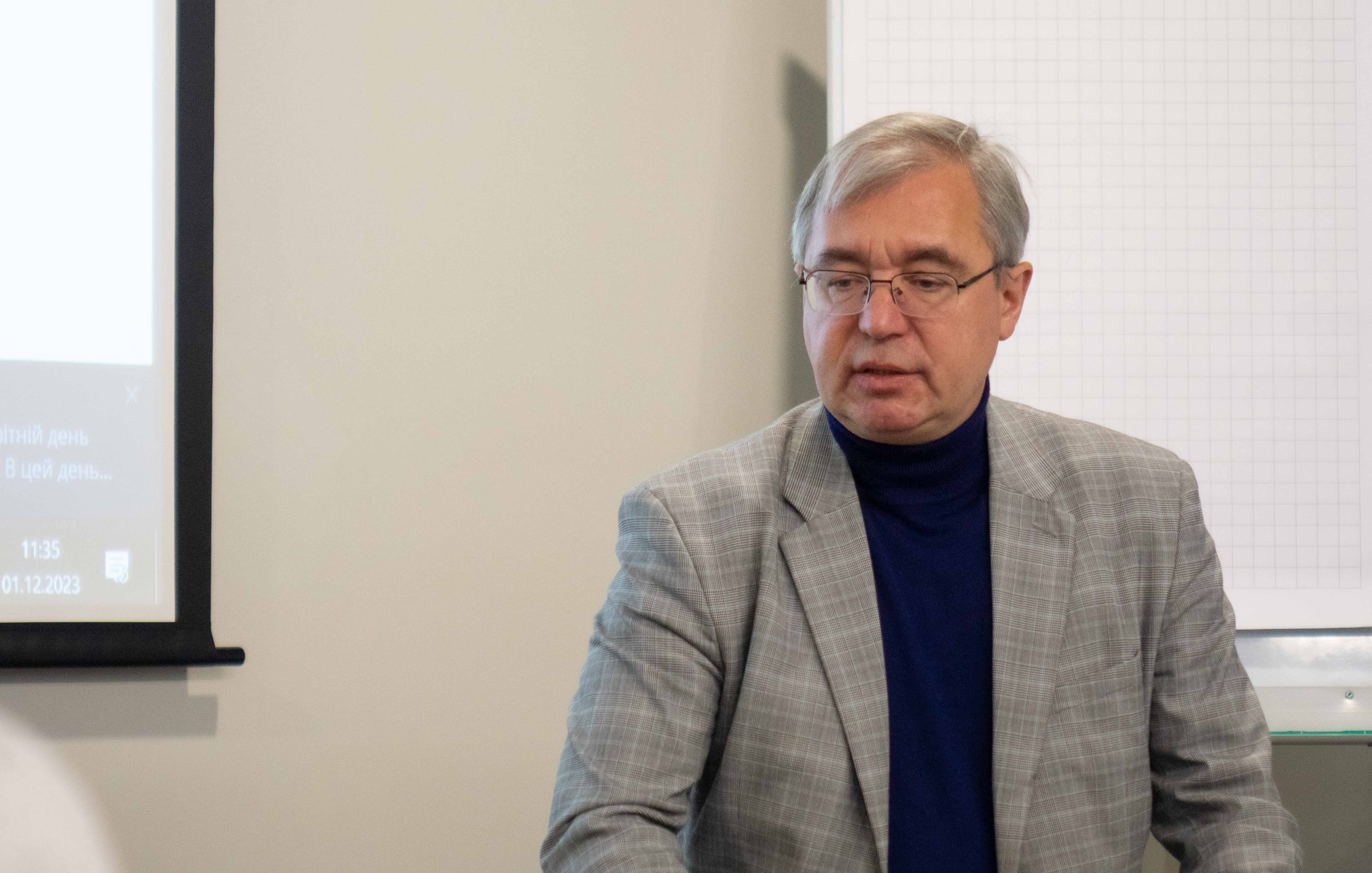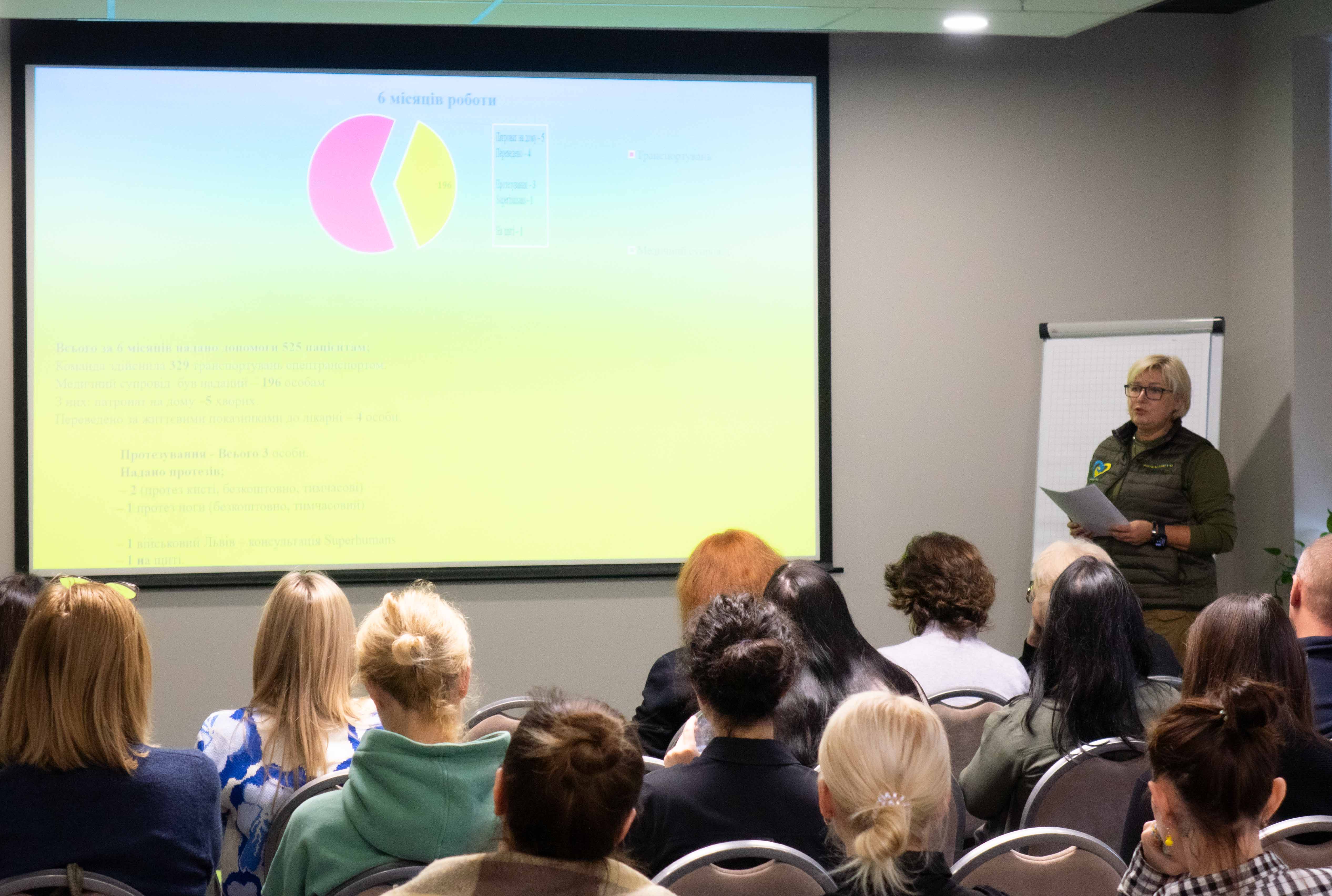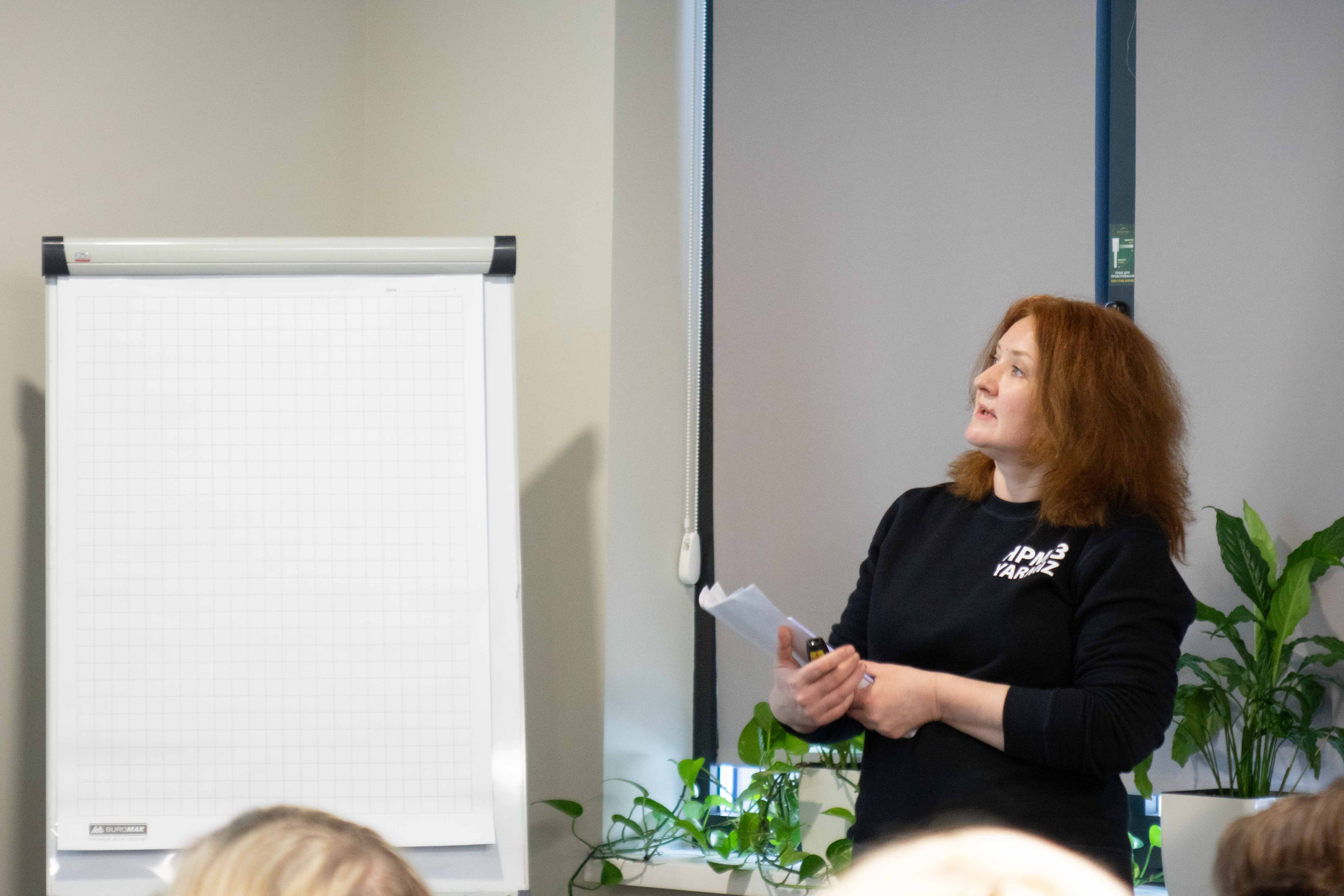“We want to include work with veteran and volunteer communities as part of the Foundation’s strategy for the longer term,” said Oleksandr Sushko, director of the International Renaissance Foundation.
About two years ago, the International Renaissance Foundation in partnership with the European Union launched the “Hold the Line” initiative to support volunteer and veteran associations. In total, 35 organizations from different parts of Ukraine have been supported under the initiative, according to European Space.
The first wave of the “Hold the Line” competition focused on supporting volunteer communities that help communities in particular danger, as well as communities on the home front that host and support IDPs and other victims.
The priorities of the second wave of the competition include rehabilitation and reintegration of female and male veterans, protection of defenders, support for military families, care for families of the dead and missing, etc.
It is expected that in 2024 the International Renaissance Foundation will announce a new wave of the competition to strengthen volunteer and veteran organizations in Ukraine.
“This initiative started as a one-time initiative, but it has ceased to be so,” said Oleksandr Sushko, director of the International Renaissance Foundation, at a meeting of grantees of the second wave of the “Hold the Line” competition. “Now we want to go further – we want to make work with veteran and volunteer communities part of the Foundation’s strategy for a longer term.”

Today, the Foundation is also working to reduce the burnout factor in volunteer organizations. In particular, institutional support is becoming a significant help for such organizations.
“We are trying to identify those who are most capable, most viable, most willing to work for a long time and who realize that the tasks we are facing now are not about short-term runs. They are about a longer history,” said Oleksandr Sushko.
The supported projects of the “Hold the Line” competition are small. The funding is from 10 to 25 thousand euros, and the implementation period is 6 months.
According to Olha Halchenko, manager of the Civic Resilience program at the International Renaissance Foundation, such small projects have a cumulative effect:
“When we can support an organization institutionally, it will help hundreds of people today, and thousands the day after tomorrow. Here I see the impact in strengthening the strength of these organizations so that they can do what they know how to do even better and on an even larger scale.”

The Yurydychna Sotnia NGO is among the second wave of organizations that received a grant to implement the all-Ukrainian project “Strengthening Legal Protection of Servicemen and Their Families.”
“Our project indicators were three times higher – we planned to provide 9,000 consultations and primary legal aid, and as a result, we provided more than 23,000,” comments Alla Beloshenko, head of the veterans’ department at the Yurydychna Sotnia NGO. “Another achievement is the introduction of internal changes in the team. Now we have five separate areas: medical issues, liability, veterans, prisoners and missing persons, and military service issues.”
The “Aibolit” project (Irpin), implemented by the “Wings of Victory” Charitable Foundation, was also supported by the “Hold the Line 2” initiative. The project is aimed at strengthening military medicine to help military personnel expand the range of medical services, such as consultations, examinations, and consultations at various hospitals.
In particular, the Aibolit project team assists in additional transportation of the military – if necessary, or discharge from a hospital or rehabilitation center to another location or for consultations.

“I have been working in a burn center for about 20 years, and I also have a lot of frontline experience,” said project founder Viktoriia Kramarenko, “So when I came back from my rotation, I realized that I had to do what I could do. So, in a very short time, we have achieved good results. We have transported up to 600 patients in six months alone. When a person comes to us and we see that we can quickly help and transport them, we do it quickly.”
The YARMIZ Rehabilitation and Adaptation Center is also one of the veterans’ organizations that supports the military and their families today. The Center’s team implemented the project “Formation of a system of psychological support for defenders and their families as a guarantee of community resilience” (Kyiv).
“We train psychologists of various fields, both family and military,” said Svitlana Boyko, project manager. “This system includes assistance to commanders so that they can support their personnel, active military personnel, and family members. We also train family psychologists with basic education and experience who teach the Five Steps of Resilience for Those Who Wait program.

Thanks to the grant support, the project team also developed a “Guide to Mental Health for Military Personnel in War” and updated the “Practical Guide to Recommendations for Civilians and Military Personnel with Disabilities as a Result of War.” Both manuals are small in format and contain QR codes that can be used to access various resources with useful information.
Read more about the supported projects of the “Hold the Line 2” competition.

Currently, the policies of donor organizations and the state to support veterans’ organizations and organizations working in the field of veterans’ support (pro-veterans’ organizations) are still being formed.
CSOs in this area report instability and insufficient funding. According to the results of this year’s survey of civil society organizations working in the veterans’ sphere, 92% of the surveyed CSOs have at least one source of funding for their activities (the remaining 8% said that their organization’s activities are not funded in any way).
Most of the CSOs (50% of all) mentioned donations from ordinary citizens. This is followed by donations from business (26%), funding from international organizations (26%) and funding from the local budget (25%).
19% of CSOs finance their activities from their own funds or through membership fees, 16% – at the expense of other Ukrainian CSOs. The state budget is mentioned by 5% of CSOs.
According to the experts of this study, after demobilization, we should expect a surge in the resumption of work or the creation of new veterans’ organizations. That is why it is so important that both the state and the donor community prepare to support these organizations.
Today, there are not many opportunities for veterans’ organizations and pro-veterans’ organizations to receive funding. And as noted in the study, so far, a significant number of donor organizations limit or do not support activities related to assistance to (any) military personnel. And this negatively affects the ability of organizations that help (future) veterans at all stages.
Among the donor organizations that currently support veterans’ associations and pro-veteran CSOs is, for example, IREX. Back in 2019, the organization launched the IREX Veterans Reintegration Program. Follow the announcements of new competitions on the Program’s Facebook page.
Today, ISAR Ednannia does not have a separate competition for veterans’ organizations, but there are other opportunities. For example, a grant competition for organizational development, including for such institutions, is running until January 24.
Also among the priorities of the grant competition “Civil Society for Victory and Restoration of Sustainable Development”, which runs until January 15, is support for veteran communities.
According to Sofia Holota, Head of Research, Monitoring and Evaluation at ISAR Ednannia, in 2024 the organization will announce a separate competition to support veteran and post-veteran organizations.
The Ukrainian Veterans Fund, an institution managed by the Ministry of Veterans Affairs of Ukraine, also provides financial support to CSOs. For example, in 2023, such competitions as #VARTO+GO and #VARTO: Unity. Follow the announcements of new contests here.
In addition, in 2024, the International Renaissance Foundation is expected to announce the “Hold the Line 3” competition. “We want to reach some kind of professionalization of these organizations,” commented Olha Halchenko, manager of the Civic Resilience program at the International Renaissance Foundation. “The third wave, which we plan for next year, will have more serious requirements.”

